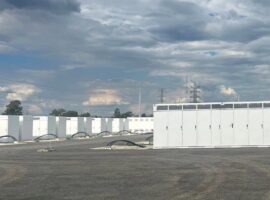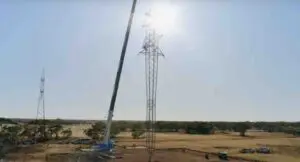The renewable energy business is crossing a threshold in this State. The industry is changing, and Dr Nahan’s economic rationalism is going to do the sector a great favour by accelerating that process, irrespective of his intentions in this regard.
Dr Nahan has been quick to establish his presence and his outlook for WA’s energy sector. He is a deep thinker, and a pure economic rationalist.
From the perspective of the clean energy industry, which many consider to be dependent on subsidies and concessions, having a commercially-focussed economic rationalist in the seat of the Energy Minister might be construed to be a negative.
Dr Nahan has stated that no new generation plants will be required in the SWIS for the next 3 to 4 years, partly due to a drop in demand and partly due overinvestment in generation capacity caused by inaccurate forecasting. This is bad news for anyone in the generation business, and particularly bad news for renewable energy developers who are increasingly portrayed as being disruptive to the industry.
It also means that because developers of conventional fossil fuel energy projects don’t want renewables to take any more of their already-diminished market share they are going to emphasise the negative aspects of renewable energy generation whenever and wherever possible. Fossil fuel generators have recently been wringing their hands about the problems renewables are causing in our energy markets.
Their biggest problem, of course, is that renewables are reducing the profit margins of established industry players.
There is a silver lining. An economic rationalist strips the market down to its core economic fundamentals. With this Minister in office, there is little use in pandering for policies that involve government taking unnecessary risk on renewable energy contracts, paying a premium for renewable energy, or asking for any new form or subsidisation or preferential treatment. From now on, the qualitative factors are not going to be nearly as important as the quantitative fundamentals.
In the good old days when the energy market was growing steadily fossil fuel generators considered renewables to be a ‘tolerable nuisance’. Now they are seen as a serious disruptive threat to the fundamental business model of electricity supply indusrtry. Renewables, however, are a threat that will not go away because they are starting to find their commercial feet. They have graduated from a ‘nice to have’ to a truly disruptive force because the business case for renewables keeps getting better and better. They cannot be stopped because they are driven by fundamental economic advantages that are much more powerful than the green, leafy, policies such as WA’s feed-in tariff which triggered an acute boom-bust cycle in the industry.
The widespread uptake of household solar PV systems alone is causing power authorities and private generators to look at deep changes to their business models. We know this is serious because the established industry players are on the attack with public statements demonising the effect of renewables on the grid and the electricity business in general. They are trying to stop an upwards trend that is probably irrepressible, and will eventually have to be accepted and integrated.
The cleantech industry in WA has experienced very heady heights and very deep depths over the past few years. There has been significant industry consolidation, the survivors of which are a group of companies that have strong business models and which are fighting fit and cutthroat competitive.
The cleantech companies are sharpening their blades, and they are not just competing with each other anymore, they are now out for a bigger piece of the pie. The fossil fuel generators have realised that renewables are not just after the cream on the top of the electricity market. Renewable companies are actually out to eat their lunch.
It is of course true that conventional generators fuelled by coal, gas and liquid fuels have always formed the foundation of our electricity generation system. However, the percentage of renewables in this State is not high, and from an engineer’s perspective the technical challenge of significantly increasing the percentage of renewables in WA’s grid, without compromising security of supply, can be overcome. Engineers can solve that side of the equation. The challenge is commercial, and renewables are now ready to become a major player in the big game.
The days of renewable energy playing second fiddle to fossil fuels are over. Dr Nahan’s presence as Energy Minister could do the renewable energy industry a great favour by forcing the cleantech industry to develop the killer instinct that the members of the fossil fuel industry have used so successfully in the past to keep renewables at bay.
Jamie Ally is General Manager of EMC Engineering










